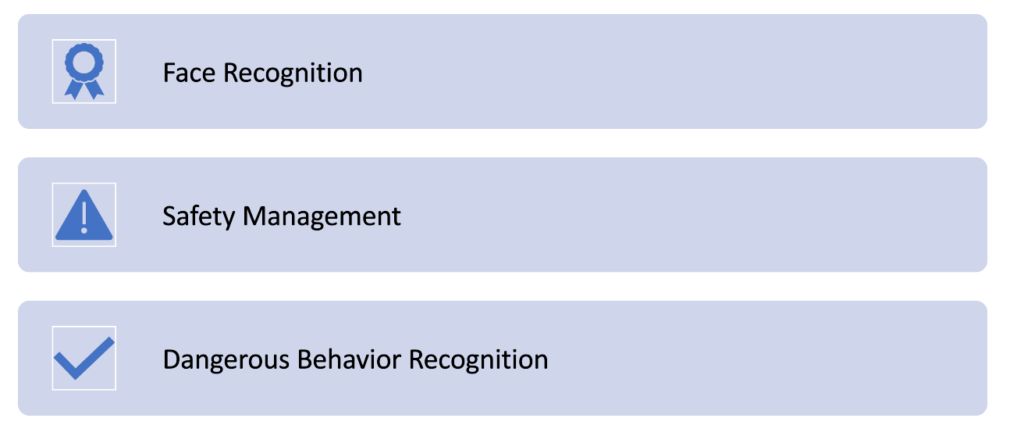
Business Challenges
The retail industry grapples with a range of pressing issues and challenges. These include security concerns such as theft, vandalism, and fraud, which traditional surveillance systems struggle to effectively address. Operational inefficiencies, such as inventory management and customer flow optimization, also plague retailers, impacting profitability and customer satisfaction. Ensuring a seamless customer experience is an ongoing challenge, with issues like long checkout queues and product stockouts affecting shopper satisfaction.
Historically, retailers have turned to closed-circuit television (CCTV) systems to mitigate these challenges. However, these conventional solutions come with significant limitations. Traditional CCTV systems are primarily reactive, relying on human operators to review footage after an event has occurred. This delay hinders real-time responses to security breaches. Furthermore, these systems often provide only basic video recording and lack the ability to extract meaningful insights from the footage, such as customer behavior patterns or inventory trends. Manually monitoring and managing CCTV systems requires significant human resources, making it costly in the long run.
The integration of AI technology, particularly Smart Video Surveillance, offers a promising solution to these challenges. AI-powered systems can transform the retail landscape in several ways. Firstly, they enable proactive security measures by employing algorithms that detect suspicious behavior or events in real-time, allowing for immediate responses and enhanced security. Secondly, AI-driven analytics provide valuable insights into customer behavior, helping retailers streamline operations, reduce wait times, and optimize product placement and inventory management. Additionally, AI can personalize shopping experiences by analyzing customer preferences and offering tailored recommendations, leading to improved satisfaction and loyalty. While the initial investment in AI technology may be significant, it can ultimately reduce costs associated with manual surveillance and improve resource allocation. Ultimately, by harnessing the potential of AI, retailers have the opportunity not only to address existing challenges but also to revolutionize the industry, providing a safer, more efficient, and enjoyable shopping environment for consumers.
AI Solution
AI solutions in smart video surveillance are revolutionizing the retail industry. Facial recognition plays a pivotal role in efficiently tracking employee attendance, streamlining time tracking, generating attendance reports, and enhancing overall management. This technology finds applications in a variety of retail settings, from store chains and public entrances to office buildings and educational institutions.
Additionally, facial recognition is a powerful tool for alerting security personnel to unfamiliar or potentially criminal individuals in real-time. It offers features like VIP detection, unauthorized entry alerts, and crowd management, bolstering security and safety in retail environments.
In specific scenarios, such as pedestrian lane allocation, strategically positioned cameras equipped with AI capabilities optimize customer flow within retail spaces. Furthermore, AI systems excel at identifying dangerous behaviors, ranging from wall climbing to fights, harassment, and even child abduction, ensuring a safer shopping experience.
Managing crowds and visitor analytics are simplified through AI-powered people counting, which provides insights into visitor patterns, and crowd dispersal detection, enabling rapid response to unusual crowd behavior while ensuring compliance with safety regulations.
Moreover, AI technology extends to vehicle identification and safety compliance monitoring in parking areas, enhancing overall security. Lastly, the swift detection and alerting of fire incidents, particularly in areas with chemicals, is made possible through smart video surveillance, offering faster response times compared to traditional sensors.
These AI-driven solutions are shaping the future of retail, enhancing security, improving operational efficiency, and providing valuable insights for the industry.

Expected Outcome
The implementation of these AI solutions is anticipated to yield a range of substantial benefits. First and foremost, they promise to enhance security and safety across diverse settings, encompassing retail establishments, corporate offices, and educational institutions. Moreover, these solutions offer a means to efficiently track and manage attendance, optimizing workforce management and performance assessment.
Real-time detection and alert mechanisms for unauthorized entry and suspicious activities will bolster security measures, providing timely responses to potential threats. Additionally, these AI-driven systems will elevate crowd management and compliance monitoring, contributing to a more orderly and secure environment for patrons.
In the event of critical incidents such as fires and altercations, these solutions enable swift responses, thereby minimizing risks and associated consequences. Furthermore, the technology serves as a proactive deterrent against criminal activities, mitigating security risks.
Beyond security considerations, these solutions address societal concerns by reducing instances of harassment and inappropriate behavior in public spaces. They also contribute to child safety by detecting and preventing potential abduction scenarios. Across various sectors, operations will be streamlined, and risks mitigated, resulting in enhanced overall efficiency.
Finally, the advanced data collection and reporting capabilities of these AI solutions will furnish valuable insights, facilitating data-driven decision-making and further process optimization.











